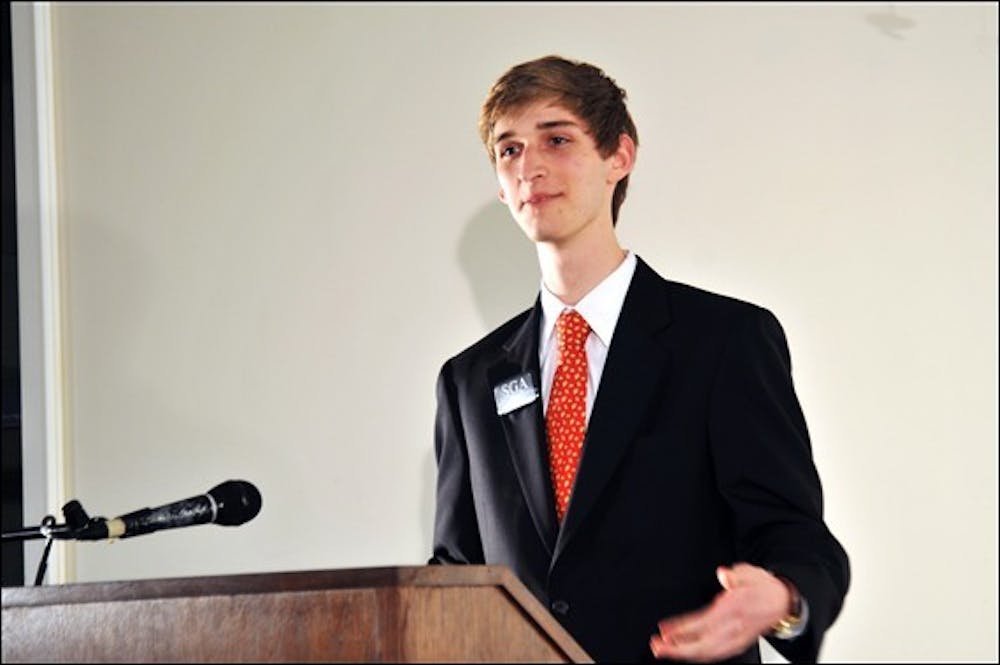Their job is to represent the student body. Immersing themselves in a national dialogue adds Elon University’s voice to the equation.
“I think it gives us a stronger voice as a leader on campus because we are supposed to be the voice of the students,” said Sam Warren, Student Government Association executive president. “Darien and I will now be able to speak from multiple sides.”
Warren and Darien Flowers, SGA executive president-elect, gained further insight into American Israeli relations and the conflict in the Middle East at the 2012 American Israel Public Affairs Committee Policy Conference in Washington D.C. AIPAC invited student government leaders throughout the country to the conference March 3, of which 217 attended.
“They see us as the future leaders in the political system and so it was to help us learn about the cause and AIPAC in general,” Warren said.
President Barack Obama, Israeli President Shimon Peres and Israeli Prime Minister Benjamin Netanyahu were among the speakers presenting at the conference.
[quote]We want to make sure Elon is a campus welcoming of all religions and nationalities. -Sam Warren SGA Executive President[/quote]
AIPAC, a group dedicated to establishing positive American-Israeli relationships, invited the students in hopes that they will apply their experiences at the conference to life on their college campuses, according to Warren.
“Typically, when we think about sending people to conferences, not just from an SGA standpoint, but from special allocations, we look at how it will impact Elon and what they will bring back,” Warren said.
When Warren realized the conference took place during SGA’s transition period, he asked them to extend the invitation to Flowers, and both students were invited to attend.
“Because I am leaving soon, I wouldn’t impact Elon in the way that they needed it,” he said.
For Flowers, the opportunity to listen to Obama and Peres speak and interact with other students translates to Elon student engagement, he said.
Understanding a new perspective of the conflict enables him to discuss the issue with students that share the same sentiment as the Israel advocacy group, Flowers said.
“This was an opportunity for me to hear one group’s position on an issue and become more informed about it,” Flowers said. "But as we learn at a liberal arts institute, there are multiple sides to an issue and multiple ways to approach an issue.”
Warren said he viewed the conference as a way to further develop religious life at Elon as the university moves to promote more inter-faith dialogue.
“We can put the knowledge Darien and I got from this experience into the equation,” Warren said.
Although the conference promoted positive relations between the United States and Israel and encouraged participants to align themselves with the Jewish state, Warren and Flowers refrained from determining the university’s position on the issue.
A student body president in attendance asked student leaders to sign a commitment that they would cultivate a pro-Israeli campus. Provided SGA procedure, Flowers and Warren would need Senate approval before taking such action. Furthermore, the SGA representatives did not want to isolate Elon students that do not share the same view concerning the Israeli-Palestinian conflict.
“We want to make sure Elon is a campus welcoming of all religions and nationalities,” Warren said.


